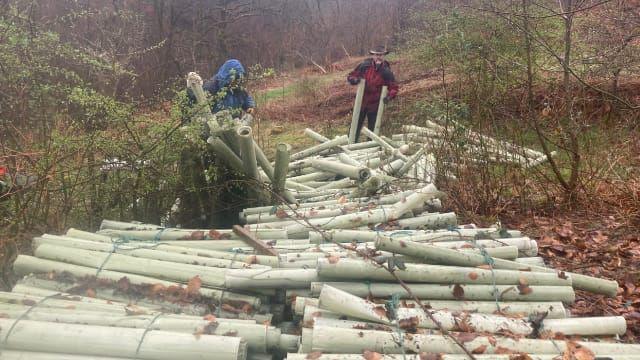Abbey's staircase reinstated after 500 years
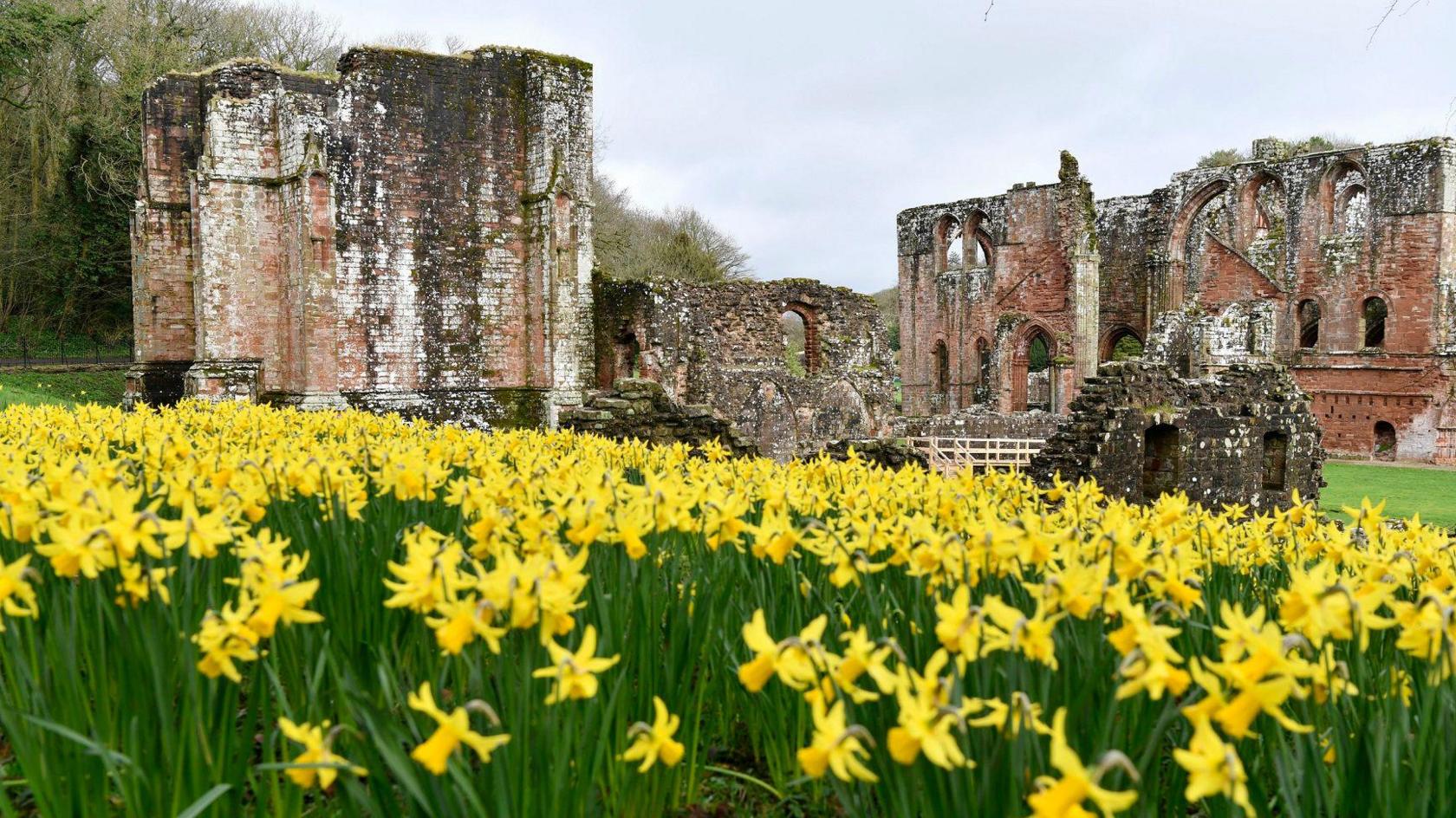
The new timber staircase at Furness Abbey also includes a viewing platform
- Published
A staircase used by medieval monks on their way to early-morning services has been reinstated 500 years after it was destroyed.
The so-called night staircase at Furness Abbey, on the outskirts of Barrow, in Cumbria, connected the dormitory to the church and would be used by monks going to sing matins during the hours of darkness.
Originally constructed from stone, it was destroyed during Henry VIII’s dissolution of the country's monasteries.
English Heritage said the new timber replacement would allow people to see the abbey's "remarkable ruins through the eyes of the monks themselves".
It provides access to what was the dormitory area, a part of the abbey not previously accessible to visitors, as well as a platform with views of the site's ruins.
On their way down the steps, the monks would pass a statue of St Christopher, strategically located to be the first thing they saw every day.
The saint's image was thought to provide protection against a "bad' death" in which an unconfessed mortal sin would lead to hell in the afterlife.
'Finest monastic ruins'
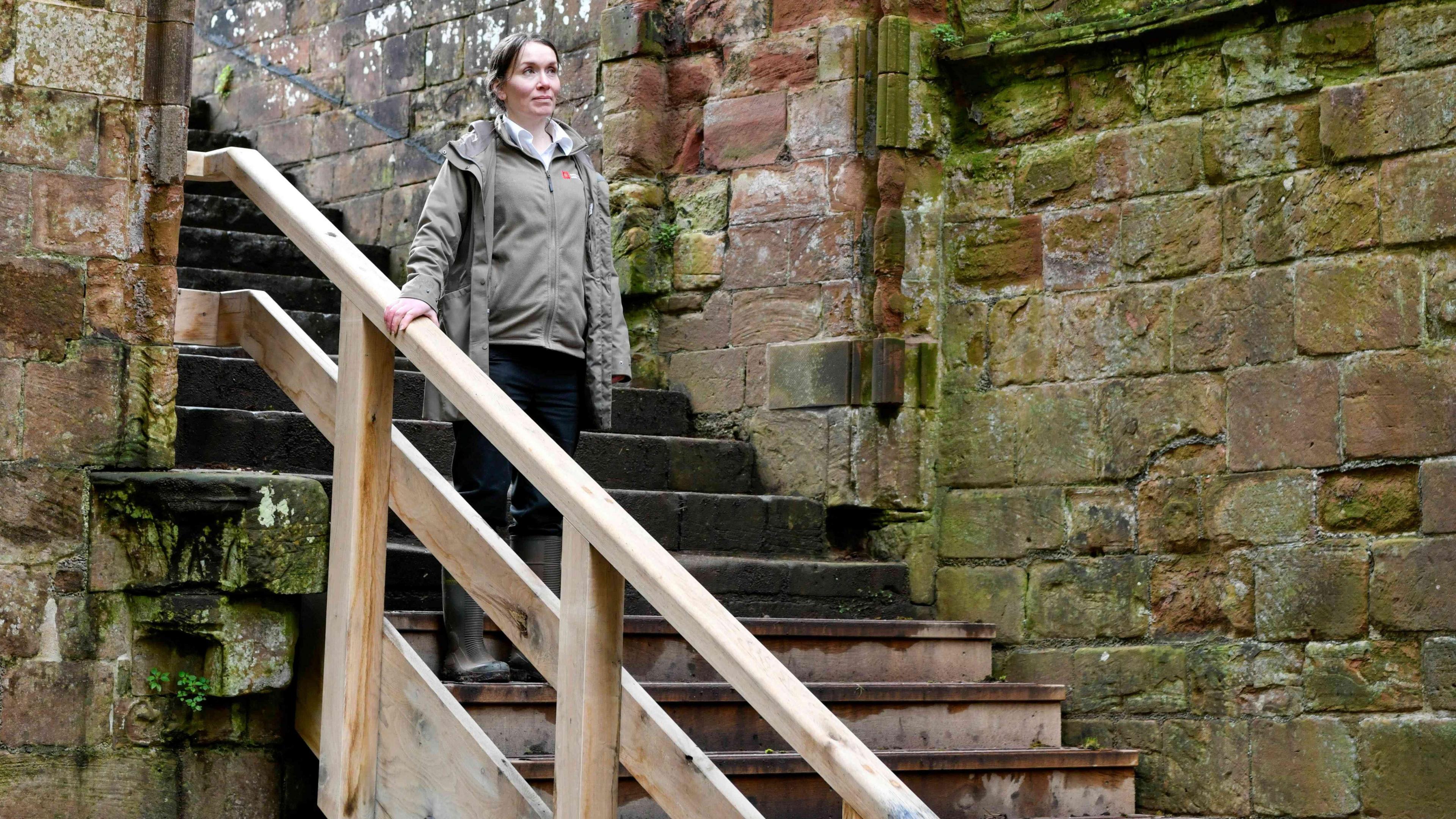
The timber staircase replaces stone steps destroyed hundreds of years ago
English Heritage says the monks conducted eight services each day, with the night staircase used between midnight and 02:00 and a "day" staircase used for later services.
Dr Michael Carter, the charity's senior properties historian, said the abbey had "some of the finest monastic ruins in England".
Welcoming the new staircase, he added: "Not only are we are recreating an experience that was central in the lives of the medieval monks, we are also giving visitors the unique opportunity to look back in time and see these remarkable ruins through the eyes of the monks themselves."
Furness Abbey was founded in 1127 by Stephen, later King of England, and it is believed to have been one of the largest and wealthiest abbeys in north-west England at the time.
It was the first large monastery to be suppressed during the English Reformation in the mid-1530s.
The staircase was funded through a £250,000 Landfill Communities Fund grant from FCC Communities Foundation.
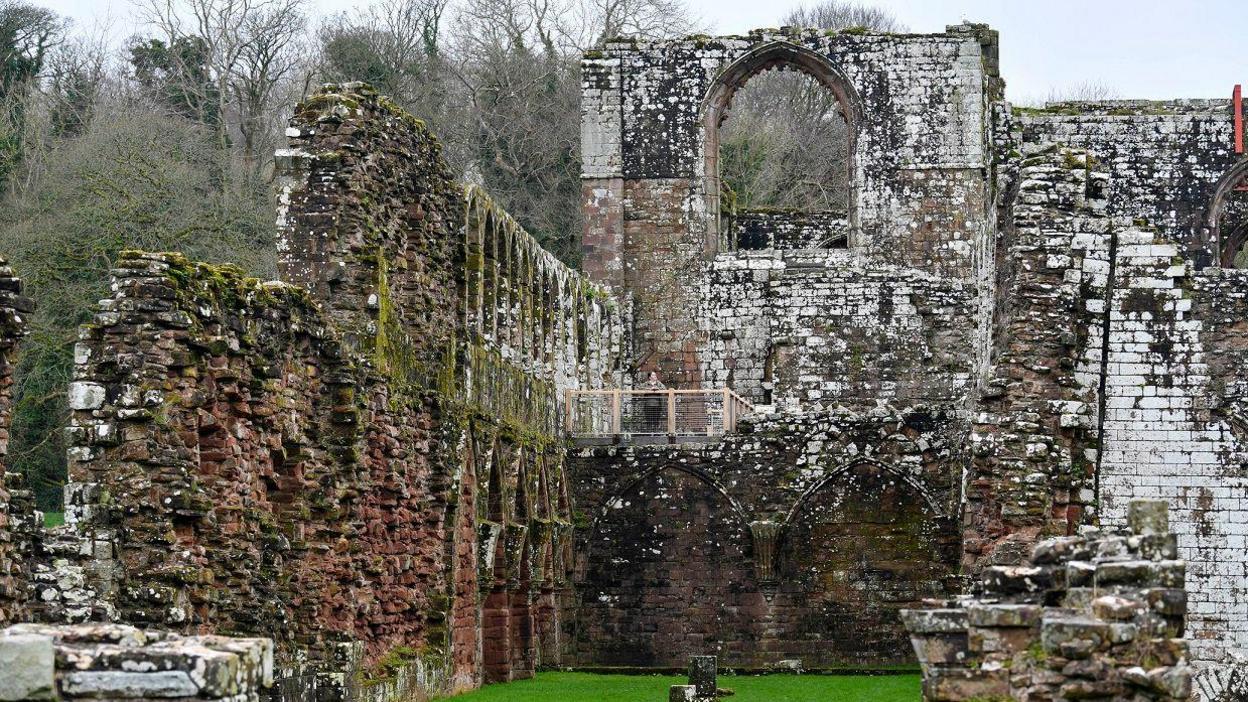
The viewing platform offers views of the Abbey previously inaccessible
Follow BBC Cumbria on X (formerly Twitter), external, Facebook, external and Instagram, external. Send your story ideas to northeastandcumbria@bbc.co.uk.
Related topics
More stories from BBC North East and Cumbria
- Published8 April 2024
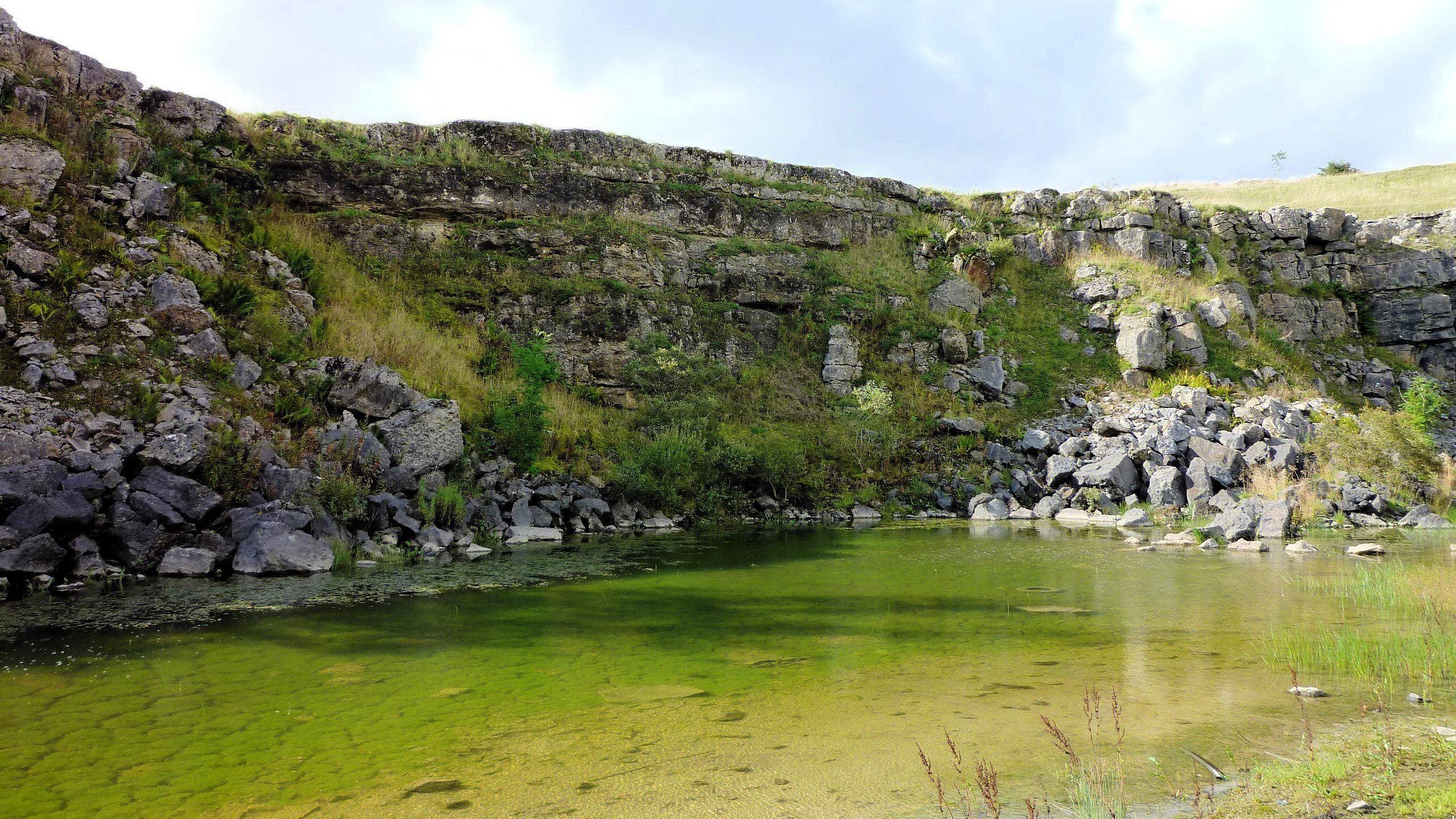
- Published7 April 2024
